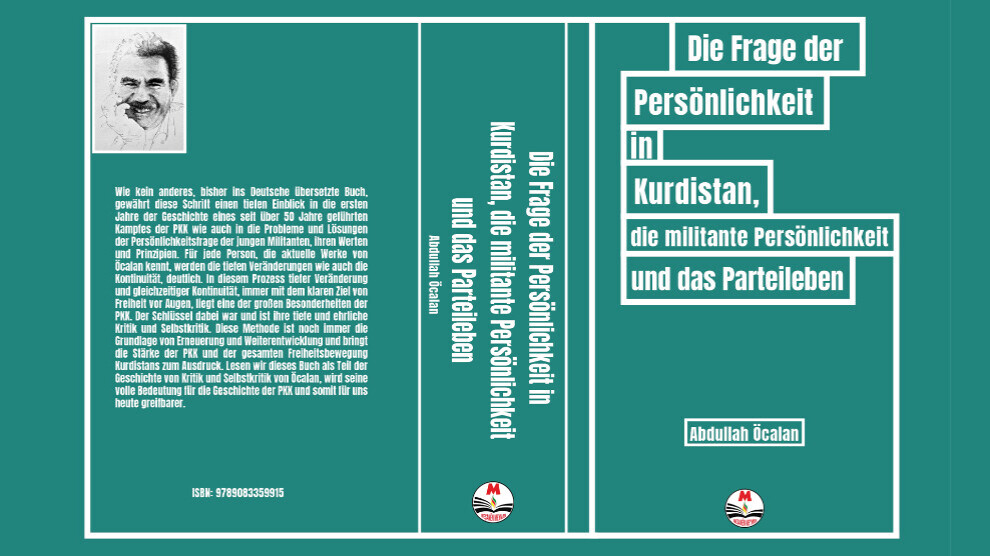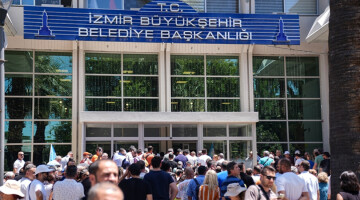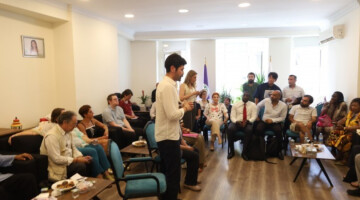The Kurdish publishing house Meyman has announced the publication of the German translation of the book ‘Die Frage der Persönlichkeit in Kurdistan, die militante Persönlichkeit und das Parteilleben’ (The Question of Personality in Kurdistan, the Militant Personality and Party Life) by Abdullah Öcalan. The book by the founder of the Kurdistan Workers' Party (PKK) makes it clear that the big question of personality, the question of “how to live”, was already at the centre of political, ideological and organisational discussions at the beginning of the Kurdish freedom movement.
The book, originally published in 1985, is a work from the early years of the party and, juxtaposed with the new paradigm, clearly shows the differences and changes, but also the continuity in the history of a struggle for liberation that has lasted over 50 years.
But this is not the only significance of the book for today's readers. In addition to contributing to a deeper understanding of the history and theory of the PKK, the importance lies in Öcalan's methodology, which becomes visible through the book. The book was a direct reaction to the difficulties observed in the party's development process. A reaction to the problems in the personalities of Kurdish society and the young revolutionaries of the PKK.
The foreword states: “Like no other book translated into German so far, this book provides a deep insight into the first years of the history of the PKK struggle that has been waged for over 50 years, as well as into the problems and solutions of the personality question of the young militants, their values and principles. For anyone familiar with Öcalan's recent works, the profound changes as well as the continuity become clear. In this process of deep change and continuity at the same time, always with the clear goal of freedom in mind, lies one of the great specialities of the PKK. The key was and is their deep and honest criticism and self-criticism. This method is still the basis of renewal and development and expresses the strength of the PKK and the entire Kurdistan Freedom Movement. Only organisations and individuals who are weak and lack self-confidence avoid criticism and self-criticism. For them, criticism means destruction and self-criticism means total collapse. Those who have self-confidence, however, are strengthened by criticism and self-criticism and are able to pursue their own goals more successfully. If we read this book as part of the history of Öcalan's criticism and self-criticism, its full significance for the history of the PKK and thus for us today becomes more tangible.”
The book can be ordered online from Pirtukxane from September and will also be available at the International Kurdish Cultural Festival on 21 September in Frankfurt as well as other Kurdish events and in Kurdish community centres.












